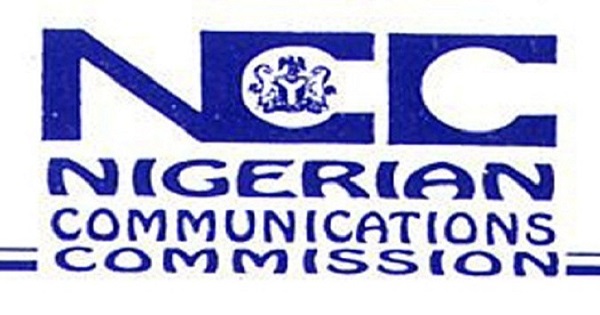Telecom
Internet Users Hit 103m in May- NCC

Prof. Umar Danbatta, the Executive Vice Chairman, Nigerian Communications Commission (NCC) on has described the growth of the internet as enormous as the number of users reaching 103 million in May.
Danbatta, who was represented by Mr Haru Alhassan, director, New Media and Information Security of NCC, said this in Abuja at the Nigeria Internet Governance Forum (NIGF) 2018.
The forum’s theme is: “Internet: An Enabler for Good Governance”.
He said that this was an impressive growth from 28 million internet users recorded in 2012.
“This evolution shows the importance of harnessing the benefit of the internet for good governance.
“This figure of the internet subscribers’ data highlights the importance and the value of the internet,” he said
Danbatta said that the commission would also license three additional Infrastructure Company (INFRACOs), bringing the number to seven to boost broadband penetration in the country.
He said the three INFRACOs were awaiting approval as the commission had earlier licensed two infrastructure companies earlier in the year to lay the foundation for internet penetration and increased broadband services.
The two INFRACOs are Zinox Technology Ltd. for Southeast and Brinks Integrated Solutions Ltd. for Northeast.
“The licenses are based on NCC open licensed model which is in line with the National Broadband plan 2013 to 2018,” he said.
Mainone Cable company had been licensed to provide services in Lagos, while it got its license to cover the North Central Geopolitical Zone including Abuja.
“This event is very important in bringing various stakeholders to discuss issues of internet governance,” Danbatta said.
Prof. Muhammad Mainnima, vice chancellor of Nasarawa State University Keffi said the theme of the forum was apt and worthy of participation as Nigeria was approaching the 2019 general elections.
Mainnima, represented by Prof. Grace Pennap, deputy vice-chancellor of the university said Information Communication Technology (ICT) would have significant role to play in the elections.
“While we agree that internet can promote good governance, it is important to think of how to make Nigeria cyberspace safe and secured.
“Therefore, it is my sincere hope that this year’s conference will add value positively to the narratives of good governance powered by the internet,” he said.
Earlier, Mrs Mary Uduma, chair, NIGF Multi-Stakeholders Advisory Group said NIGF was the local initiative of the UN Internet Governance that was agreed on by the world in 2005.
According to Uduma, NGIF is a stakeholders platform that discusses public policy issues pertaining to the internet such as internet security, good governance.
“We have brought internet experts to dissect this along with the line of global discussion in areas of access inclusiveness and diversity, cybersecurity and trust.
Telecom
NCC Orders Telcos Inform Subscribers of Data Breach within 48 Hours

Nigerian Communications Commission (NCC) has directed telecom operators in the country to notify affected customers of any data breach within 48 hours ( that is two day) of detecting such unauthorised infringement.

This directive was contained in the revised Internet Code of Practice 2026 by the NCC, on Friday.
The document seeks to define the rights and obligations of telecom operators in handing the rights of internet users to an open internet.
In the move to protect customer information, Mobile Network Operators (MNOs) and Internet Service Providers (ISPs) are to take necessary measures to protect customers’ data from unauthorised use, disclosure, access or breach.
Telecom operators must now notify affected customers within 48 hours of detecting a compromise through text message, email or any other effective means. As contained in Chapter 3.4 of the regulation titled “Data Breach Notifications,”
The telecoms companies are also directed to notify the NCC of such a breach not later than 48 hours after determining such a breach.
“Where full details of the breach are not immediately available, the provider shall issue a preliminary notification within the same period and furnish a comprehensive update within Fourteen (14) days thereafter, or within such extended period as the Commission may approve,” part of the section reads.
The guidelines, according to NCC, are in tandem with the provisions contained in the Nigerian Data Protection Act 2023 and Part VI of Schedule 1 of the Consumer Code of Practice Regulations 2024.
The regulation also joins other agencies’ policies, ensuring protection. Agencies such as the Nigeria Data Protection Commission (NDPC) and the Federal Competition and Consumer Protection Commission (FCCPC) protect consumers against misuse of personal data, identity theft, financial loss, and reputation damage.
The review comes at a time when privacy becomes core amid frequent breaches and illegal harvest of data such as biometric, national IDs, financial information, traffic and usage, and others.
Regulations are necessary for the proper handling, consent, and regulatory compliance regarding sensitive data, ensuring it is only processed for legitimate purposes.
Under Chapter 3.5, the Internet Code of Practice 2026 addressed the handling of harvesting of transactional data by notifying and getting approval from the NCC of any usage by a third party. It noted that the NCC approval will be defined by a review and assessment of such access and “its potential effects on national considerations, consumer information and personal data.”
Telecom
Globacom Promotes Valentine Gifting with Huge Discounts on Smartphones

Globacom has announced a Valentine Smartphone promotion, which provides incredible savings on a variety of high-end smartphones from top manufacturers including Tecno, Samsung, and Infinix.

Starting on February 9, the promotion provides substantial price reductions on a number of Samsung models, including the Galaxy Z Fold 7, Galaxy A07, Galaxy A56 5G, Galaxy A36 5G, and Galaxy A26 5G. Customers who buy any of the phones will also receive a complimentary travel pouch and charger, as well as up to 18GB of extra data for six months, only available on the Glo network.
Along with other Infinix models, Tecno devices are also offered at attractive discounts, giving customers a large range of smartphones to fit a variety of tastes and price ranges.
The goal of the Glo Valentine promotion is to provide customers with the best possible deals on carefully chosen smartphones that are renowned for their cutting-edge technology, stylish designs, and dependable performance. The offer, which includes alternatives to suit a range of budgets and lifestyles, reaffirms Globacom’s dedication to customer happiness, digital adoption, greater data usage, and client centricity.
The company revealed that the promotion aligned with customers’ expectations during celebratory seasons, when demand is highest for quality smartphones at affordable prices. The company added that its partnership with trusted global and regional brands such as Samsung, Infinix, and Tecno ensures that customers enjoy premium features without compromising on value.
“The Valentine season is about connection, and what better way to stay connected than with a smartphone that fits your needs and aspirations,” the company stated. “This promo gives our customers the chance to get their dream smartphones at some of the best prices of the year, along with generous data bonuses to keep them connected,” the company disclosed.
Customers are encouraged to visit Gloworld outlets nationwide to take advantage of the Valentine Smartphone Promo while stocks last.
Telecom
GBB Expands Broadband to 13 Underserved Communities In 2025

Galaxy Backbone Limited (GBB) has recorded a significant milestone in Nigeria’s digital transformation journey by advancing broadband connectivity to 13 underserved institutions and communities nationwide in 2025, reinforcing its position as the nation’s digital backbone and a trusted partner in national development.

Guided by its mandate to enable a digitally inclusive Nigeria, GBB deliberately extended connectivity to locations within reach of its infrastructure footprint, particularly institutions with strong potential for productive use but limited readiness for immediate commercial engagement. Through this effort, the organisation continues to unlock opportunity, stimulate innovation, and support sustainable growth across critical sectors of the economy.
The expansion reached three Federal Universities, two Local Government Areas, and eight Federal Secretariats, strengthening digital capabilities in education and public administration while enhancing service delivery across the country.
GBB also extended reliable broadband connectivity to strategic and cultural landmarks such as the Nnamdi Azikiwe International Airport, Abuja, underscoring its commitment to supporting national infrastructure that drives economic activity, mobility, and global connectivity.
These deployments highlight Galaxy Backbone’s resolve to bridge the digital divide and empower institutions that shape Nigeria’s future. They demonstrate the measurable national impact of GBB’s infrastructure investments and reflect the tangible progress of the Integrated Digital Transformation Strategy (IDTS), further solidifying the organisation’s role as the platform upon which government institutions and communities can confidently build their digital future.
More importantly, the milestone illustrates that GBB’s work extends beyond technology by enabling education, improving governance, supporting economic participation, and connecting citizens to opportunity.
The initiative aligns with the Federal Government’s broadband penetration objectives and complements national programmes such as Project 774 – Universities’ Hostel Connectivity, ensuring coordinated, scalable, and sustainable impact across the country. Commenting on the achievement, Galaxy Backbone noted that every new connection brings Nigeria closer to a more inclusive digital economy while reinforcing the infrastructure required for innovation and national competitiveness.
As implementation continues, GBB remains committed to expanding access, pushing boundaries, and delivering on the promise of a fully digital nation, with further updates expected as additional phases of the deployment progress.
Galaxy Backbone Limited is the Federal Government’s digital infrastructure and shared services provider, dedicated to delivering secure, reliable, and scalable ICT solutions that support efficient governance, innovation, and sustainable national development.

 E-Financial3 days ago
E-Financial3 days agoBillions in Nigeria’s Reserves, But Where is the Growth?

 Telecom3 days ago
Telecom3 days agoQNET unveils ‘Energize Everyday’ theme, intensifies consumer protection, media partnership in 2026

 News2 days ago
News2 days agoNITDA Explores Partnership with Trust Stamp on Digital Trust and Innovation

 E-Financial3 days ago
E-Financial3 days agoAdedeji, NRS Boss says Technology is Crucial to Tax Reform’s Success

 E-Financial2 days ago
E-Financial2 days agoNAICOM Targets Resilient, Global Competition Market in Insurance Sector Consolidation

 E-Business3 days ago
E-Business3 days agoKaspersky Reports 15% Growth in Malicious email Attacks in 2025

 News3 days ago
News3 days agoNDIC Moves to Boost Customers’ Confidence in Nigerian Banks

 General News3 days ago
General News3 days agoRussia Blocks WhatsApp, Pushes State App Max as Alternative Amid Telegram Clampdown













